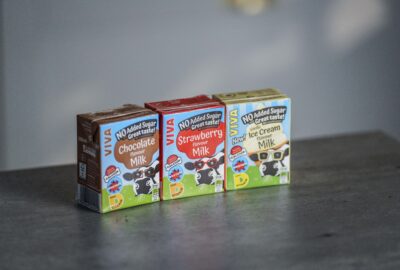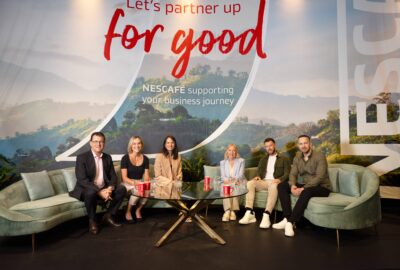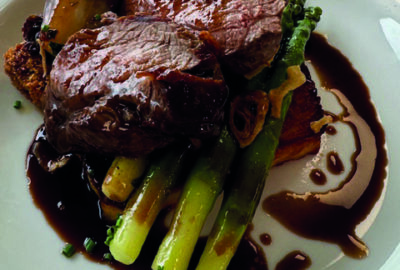Keele University in Staffordshire officially opened a low carbon energy park on campus earlier this year. Generating up to 50% of the university’s electricity demand, it is already saving approximately 1,500 tonnes of carbon emissions each year.
The university worked with French company Equans to develop the park, which comprises 12,500 solar panels and two wind turbines, as well as an industrial-sized battery to store the generated energy.
Huw Evans, Environment Manager, Keele University, says “As far as I know Keele is the only university with such a significant amount of renewable energy being generated on campus. It’s rare to have the combination of wind turbines and solar panels on one site. It means when we have events such as the TUCO conference or graduations, up to 50% of electricity demand is met by renewable energy from the park.”
The Catering Strategy
The ethos at Keele University is to rethink operations so waste isn’t generated in the first place. Huw explains “You need to look at where the waste comes from rather than generate waste and then find recycling routes. For example, chefs weigh food that is wasted from events. They then review their menus and reduce portion sizes to minimise waste. We stipulate that landfill is the final least favourable option. Anything we can’t reduce, reuse or recycle, generates energy. There’s an incinerator in south Staffordshire where general waste goes, which generates electricity – a much better alternative to landfill.”
Catering suppliers are selected based on their sustainability credentials. “Sourcing from those suppliers reduces our environmental impact and that of our customers,” says Huw. “When catering facilities are being refurbished, we tend to move from gas appliances to electricity to reduce the carbon footprint. The university works with the catering team to make continual improvements in sustainability.”
Chefs are investigating putting the carbon footprint of each dish on menus. Huw says “We want to introduce this to educate students on making sustainable choices in the food they eat.”
The university has reintroduced its reusable coffee cup scheme, which was put on hold during the pandemic. Staff and students have named the concept ‘Drink, Rinse, Repeat’. Working with Friends of the Earth, the scheme was extended to include takeaway containers. Hugh says “It’s called ‘Eat, Rinse, Repeat’, again this was put on hold because of Covid, so we look forward to re-introducing it. It works in a similar way. Students collect takeaway meals in the containers, which can then be reused.”
Encouraging Participation
Engaging with students about sustainability is important. In the Student Union on campus, there’s a zero-waste shop where students take their own containers to fill with items such as spices and lentils without using plastic packaging.
Huw says “We have allotments on site and encourage students to get involved as volunteers so they can think about how food is grown, food miles and so on.”
To cut back on food waste, there’s a ‘donation tray’ in every kitchen across the halls of residence on campus. Students can donate non-perishable unopened food which is donated to the local Trussell Trust food bank. “Pre-Covid, this was a very successful project and we’ve just brought it back.”
His advice to other universities is to network with others. “Learn from other universities. We need to share what each other is doing,” he says.
For further information, visit https://www.keele.ac.uk/


